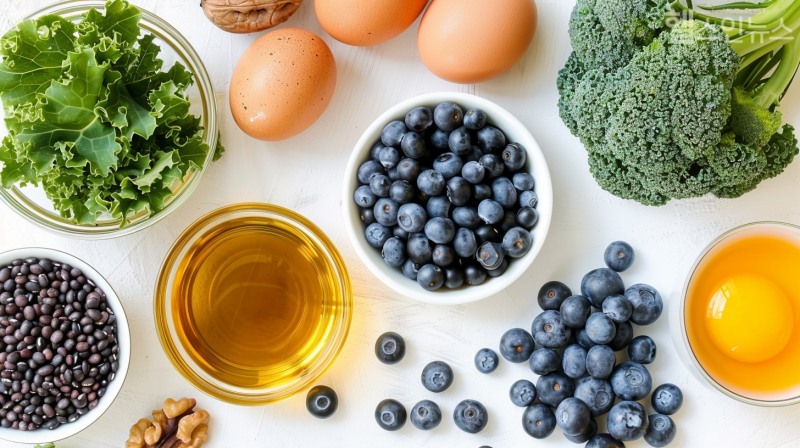Why Gray Hair Appears: More Than Just Age
Hair color stems from melanin, a pigment produced by melanocytes within hair follicles. As we age, these cells gradually lose their capacity to generate melanin, resulting in gray or white hair. Yet, aging is only part of the story.
Stress plays a substantial role. Chronic stress increases reactive oxygen species, which harm hair follicle cells and hinder melanin production. It’s not uncommon for young adults under intense academic or professional pressure to notice sudden gray strands.
Scalp health also matters. Poor blood circulation to the scalp restricts oxygen and nutrient delivery to hair follicles, impairing melanocyte function. Frequent hair dyeing, excessive heat styling, or scalp disorders like seborrheic dermatitis can worsen the hair environment, accelerating graying.

Foods to Support Hair Health and Delay Graying
Black beans and black sesame seeds stand out as excellent choices. Rich in protein, copper, and iron, these foods supply essential nutrients for melanin synthesis. Copper, in particular, activates enzymes vital for pigment production. Seaweeds such as wakame, nori, and kombu are also valuable, providing iodine and minerals that enhance scalp blood flow and support follicle function.
Eggs are a nutritional powerhouse for hair, packed with biotin, protein, and zinc. Biotin, crucial for keratin production, helps prevent hair thinning and breakage. Nuts like walnuts, almonds, and Brazil nuts offer a convenient source of omega-3 fatty acids and selenium, which reduce oxidative stress and ease scalp inflammation.
Leafy greens, including spinach and kale, provide iron and B vitamins, promoting robust scalp circulation and ensuring follicles receive sufficient oxygen and nutrients. Blue-backed fish like salmon and mackerel deliver omega-3s, which improve scalp blood flow and reduce follicle inflammation, potentially slowing the graying process.
Liver is another beneficial food, offering a rich source of vitamin B12 and iron, particularly helpful for those concerned about early graying. For stress-induced gray hair, antioxidant-rich foods like blueberries and açai berries can help counter oxidative damage.
While these foods aren’t a cure, incorporating them into a balanced diet may promote healthier hair and postpone the appearance of gray strands.
Haeun Oh, HEALTH IN NEWS TEAM
press@hinews.co.kr


